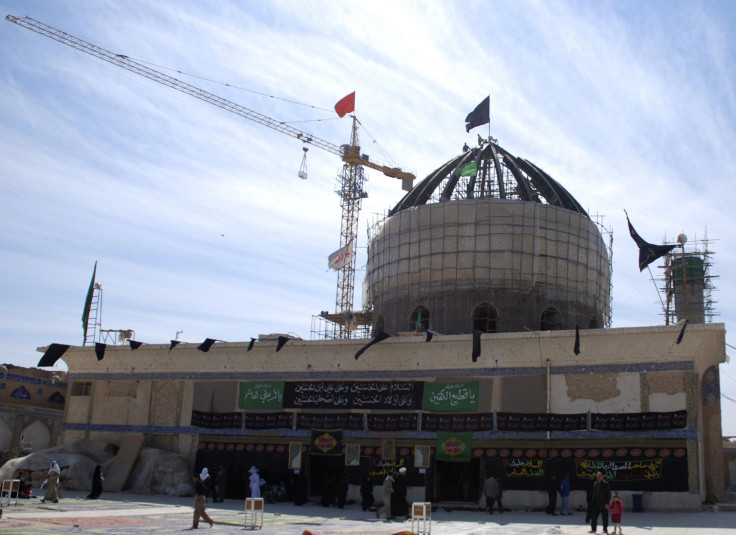ISIS Mortar Attacks On Samarra Shrine Kill 6 Igniting Fears Of Larger Sectarian Conflict

At least six people were reportedly killed in the Iraqi city of Samarra late on Monday after multiple mortar attacks by Sunni extremists targeted one of the holiest shrines for Shiite Islam.
On Monday, four mortar shells were fired by the Islamic State of Iraq and the Levant into the compound of the al-Askari mosque in Samarra, nearly 78 miles north of the capital city of Baghdad. Built in 944, the mosque contains the tombs of two Shia Imams, and has been targeted by extremists twice before, leading to widespread violence across the country. It's now feared that the destruction of the Shiite shrine by Sunni ISIS, which now controls large parts of northern and western Iraq and has declared an Islamic caliphate in the region, could potentially ignite a large-scale civil war.
According to a security official in Samarra, two mortar shells hit the mosque’s famous golden dome, damaging it slightly, while two other attacks were targeted at the courtyard, where many people had gathered to offer prayers on the first day of Ramadan, the New York Times reported.
A bombing of the shrine by Sunni extremists in February 2006 destroyed the dome, leading to the worst sectarian violence in the country’s history, as Shiites hit back forcefully.
In June 2007, another bombing severely damaged the original building's structure, triggering more widespread anger among the country's majority Shia Muslim population. The dome and minarets were repaired before the mosque was reopened in April 2009.
ISIS, which follows an extreme version of Islam, believes that shrines should be destroyed because they are antithetical to Islam, and has destroyed many shrines in the areas they control in Syria, Business Insider reported. Sunnis have tried before and failed to seize Samarra after being driven back by an allied defense made up of the Iraqi army and Shiite armed forces, which now guard the shrine and the city of Samarra.
The latest attack on the city has also reportedly highlighted Iran's role in assembling private Iraqi armed forces, since January, to guard Shiite shrines in Iraq.
“The recent utilization of the so-called ‘Shrine Defense Narrative’ reflects an actual threat to the shrines (particularly in Iraq), but helps push a broader line to make Iran appear as the protector of the Shi'a and their interests,” Phillip Smyth, a researcher at the University of Maryland and expert on Shia militias, told Business Insider.
© Copyright IBTimes 2024. All rights reserved.






















